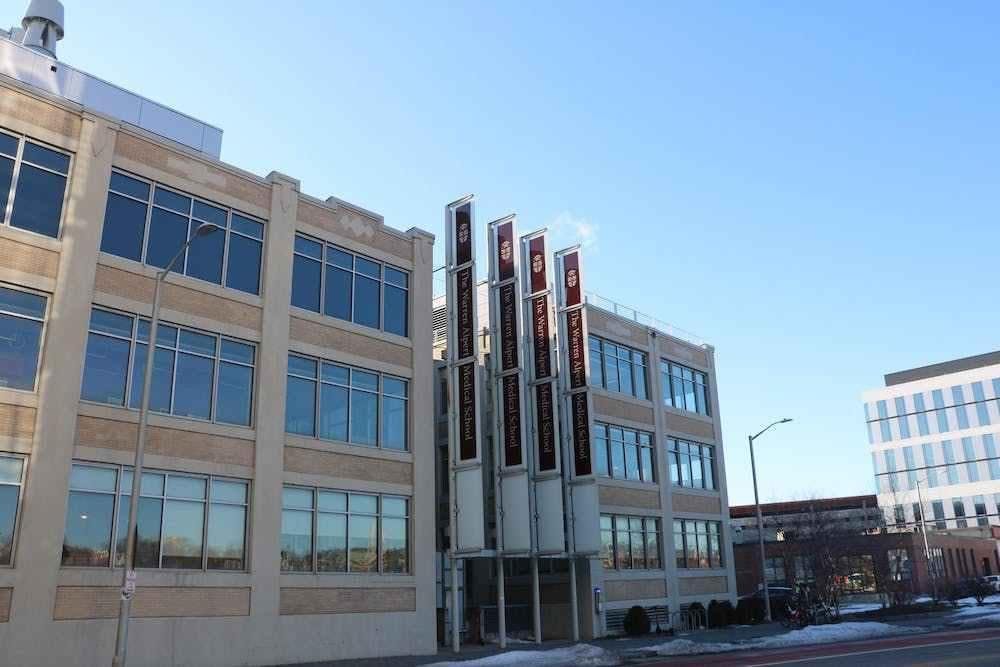Brown’s American Physician-Scientist Association chapter held its second-ever annual conference at the Warren Alpert Medical School Saturday. The event consisted of speeches, presentations of student research and panels about the diverse career paths of physician-scientists.
“The purpose of today’s conference is twofold,” said Anna Kimata MD’26 GS, the president of Brown’s APSA chapter. “One is to support physician-scientists in training with the resources that they need to build their careers, and it's also to bring people from outside of Brown so we can learn from incredible physician-scientists who are doing phenomenal work.”
The conference featured keynote speaker Vivian Cheung, who spoke about her medical journey and research regarding human genetics and gene regulation. Her research focuses on differences in RNA-DNA sequencing that advance understanding of genetic mechanisms of disease. She specifically focuses on ALS4, a neurological disease that weakens muscles and impacts physical function.
Cheung advised current students to seek solace in their community, because the difficulties many face pursuing medicine can be alleviated through a strong support system. She further urged students to not let others define their journeys in medicine, and “discover your own.”
Students also had the opportunity to showcase their research during the conference.
“My research focuses on investigating genetic and molecular mechanisms that are conserved across species,” said Adam Friedberg ’19, a Brown MD/PhD student. “We do that by both trying to bring human proteins into C. elegans,” a type of multicellular roundworm, “and taking human genetic variations that might cause insomnia or other sleep disorders and putting them into C. elegans.”
Friedberg said his motivation to conduct this research came from the effects it could have on people’s quality of sleep, beginning with examining individuals’ diets. But Friedberg said that these findings can be translated to further research that can have a “profound impact on people’s lives.”
Abby Frenkel MD’27 presented her research on total knee replacements.
“Total knee replacements are very common procedures that can produce a lot of pain afterwards,” said Frenkel. “I was involved in a case series of five patients that all received this regional anesthesia block for a total knee replacement.”
Frenkel’s studies found that two patients whose anesthetic spread to regions beyond the injection site experienced less pain after the procedure than those whose anesthetic remained localized.
“I used to think that anesthesia was just about putting people to sleep, but it's actually so much more,” she said. “It can really impact recovery and outcomes after surgery.”
Many prospective students were also in attendance. Jackie Lee ’27 thought the event was helpful for “seeing the intersection of being both a physician and scientist.”
Lee added that it helped her consider how “research can really contribute to patient care.”

Claire Song is a university news and science & research editor for The Herald. She is a sophomore from California studying Applied Math-Biology. She likes to drink boba in her free time.





